Nowadays, a business's online reputation management can significantly affect its revenue generation. With 85% of customers trusting online reviews as much as personal recommendations, it’s essential to actively manage and cultivate a positive online presence. This article explores online reputation marketing and management, their importance, and the tools and strategies to effectively manage your digital footprint.
What is Online Reputation Marketing?
Online reputation marketing involves leveraging positive customer feedback and reviews as marketing content. This proactive approach focuses on building and promoting a strong reputation to attract customers and increase sales. Highlighting positive experiences, testimonials, and reviews, can help businesses enhance their credibility and appeal. Effective reputation marketing can lead to better customer retention, improved search rankings, higher website conversion rates, and reduced customer acquisition costs.
Explore the importance of online reputation management monitoring for businesses in our article Online Reputation Management for Hotels - All You Need to Know.
What is Reputation Management in Marketing?
Reputation management in marketing involves maintaining and protecting a company’s brand through crisis management.This includes responding to negative reviews, managing feedback on social media, and resolving customer complaints. The goal is to control and mitigate the impact of negative information, ensuring that the company’s online presence remains positive. Reputation management is a reactive strategy that addresses potential issues to prevent long-term damage to the brand’s reputation.
While it may seem like a routine operational task, 95% of business leaders acknowledge that their crisis management capabilities need improvement. This is especially true today, as a single customer review can easily circulate online and tarnish a brand's image.
What is online reputation management in digital marketing?
Online reputation in digital marketing refers to how a business or individual is perceived based on their digital presence. This includes reviews, blog posts, news articles, and any online content that mentions the brand. A positive online reputation builds trust, attracts customers, and enhances credibility, while a negative reputation can deter potential clients and damage business prospects. Effective reputation management is crucial for sustaining long-term success and competitiveness in the digital marketplace.
What is the meaning of Internet Reputation?
Internet reputation refers to the collective perception of a business based on its online presence. It encompasses everything from social media activity and online reviews to blog posts and news articles. Your internet reputation is the digital equivalent of a first impression and can significantly influence various aspects of your business operations. A positive internet reputation can attract new customers, foster partnerships, and drive growth, while a negative one can deter potential clients, damage relationships, and hinder success.
For businesses, maintaining a strong internet reputation is essential. Companies with more reviews generate 54% more revenue than the average, highlighting the impact of customer feedback and online visibility on financial performance.
What is Reputation Marketing vs. Reputation Management?
Reputation marketing and reputation management, while related, serve different purposes. Reputation marketing is a proactive strategy focused on promoting positive reviews and leveraging them as marketing assets. It aims to build a strong reputation that naturally attracts customers. On the other hand, reputation management is a reactive strategy that involves monitoring and addressing negative feedback to protect the brand’s reputation. Successful businesses often integrate both strategies to maintain a balanced and positive online presence.
Why is it important to manage your Online Reputation?
Managing your online reputation is vital for several reasons:
a. Trust and Credibility
A strong online reputation builds trust and credibility among customers. For businesses, this trust is essential for attracting and retaining customers. Research shows that 94% of people are more likely to buy from or hire a company with a four-star rating, emphasizing the significant impact of positive feedback on consumer decisions.
To learn more about fostering credibility and trust in the digital world, read our article Boost Credibility and Trust: Adding Google Reviews to Your Website.
b. Partnership Opportunities
A positive online reputation can also lead to partnership opportunities for businesses. When potential partners see a company with a stellar reputation, they are more inclined to collaborate, invest, or affiliate themselves with that brand. This can open doors to new alliances, collaborations, and business ventures, driving growth and expansion.
c. Business Growth
A good reputation can directly impact a business’s bottom line. Positive online reviews and testimonials can attract more customers, increase sales, and enhance revenue streams. For instance, a one-star increase on Yelp can result in a 5-9% increase in revenue, highlighting the financial benefits of maintaining a positive online presence.
Learn how to measure the ROI of online reviews in our article Understanding the ROI of Online Review Ratings: Metrics, KPIs, and More.
d. Crisis Mitigation
Effective reputation management is includes mitigating the impact of negative information during crises or controversies. By promptly addressing negative reviews, addressing customer complaints, and managing online feedback, businesses can minimize reputational damage and maintain consumer trust. Proactive reputation management strategies help prevent long-term harm to personal or brand reputation, safeguarding business interests and reputation.
In our article Negative Review Response Examples: Don't Let Bad Reviews Ruin Your Business, we've discussed how you can implement an efficient crisis mitigate strategy in the online world.
What are the types of Online Reputation Management?
Online reputation management (ORM) encompasses various strategies and techniques aimed at shaping, monitoring, and improving the perception of individuals or businesses on the Internet. Here are some key types of ORM:
1. Review Management
Reviews can shape consumer perceptions and influence purchasing decisions. Review management involves actively monitoring and responding to customer feedback on review platforms such as Google My Business, Yelp, and TripAdvisor. Research indicates that businesses that respond to reviews average 35% more revenue, underscoring the importance of engaging with customers and addressing their concerns promptly and professionally.

2. Listing Management
Listing management focuses on ensuring that business information, such as contact details, operating hours, and addresses, is accurate and consistent across various online directories, review sites, and social media platforms. Maintaining consistent business listings helps businesses enhance their visibility in local search results and improve their online credibility.

Learn the best practices for managing and improving your online presence in our article The Ultimate Guide to Optimizing Local Business Listings.
3. Search Engine Optimization (SEO)
SEO is a fundamental component of online brand reputation management, as it helps businesses control the information that appears when users search for their brand or relevant keywords. Optimizing their website and listings, creating high-quality backlinks, and generating positive online mentions can aid businesses in improving their search engine rankings and suppressing negative or irrelevant content.

Discover how SEO and reputation management intersect to shape your brand's online presence in our article Google SEO and Reputation Management: The Winning Formula.
4. Content Creation for Reputation Management
Content creation and marketing involve developing and promoting positive, engaging, and informative content across various online channels, including listings, blogs, and review platforms. Creating compelling content that showcases expertise, addresses customer needs, and highlights positive brand attributes can help businesses attract and engage their target audience while reinforcing their online reputation.

Learn how to optimize your review responses and other online content for better SEO in our article How to SEO Optimize Your Review Responses.
What are the examples of Internet Reputation Management tasks?
There are several tasks available to help manage and monitor online reputation effectively. Here are some examples:
a. Review Monitoring Alerts
Review monitoring tools such as Google Alerts and Mention allow users to receive notifications whenever their name, brand, or relevant keywords are mentioned online. These alerts enable individuals and businesses to stay informed about what is being said about them across various platforms, including review sites, news articles, and blogs.
b. Sentiment Analysis Tool
A staggering 54% of companies reported utilizing sentiment analysis to evaluate reviews and social media posts, aimingto comprehend customer sentiment and enhance their operations.
These tools employ natural language processing (NLP) algorithms to analyze the sentiment or tone of online mentions, reviews, and comments. By assessing the emotions and opinions expressed in text-based content, sentiment analysis tools enable users to discern whether the sentiment is positive, negative, or neutral. This capability assists users in gauging public sentiment and identifying potential threats or opportunities to their reputation.
Read our article Get the Most Out of ChatGPT: How Hotels Can Leverage the Technology to learn more about understanding the impact, limitations, and best applications of AI technologies.
c. Review Collection Tool
Consumers require an average of at least 40 online reviews before believing a business's star rating is accurate.
Review collection tools facilitate the systematic collection and management of customer reviews and feedback from various online platforms. These tools typically offer features such as automated review requests, customizable review templates, and centralized review management dashboards, allowing users to streamline the review generation process and monitor their online reputation more efficiently.
Discover how to effectively collect reviews and boost your local search rankings in our article How to Collect Reviews and Elevate Your Brand's Image.
d. Review Response
Review response is a critical aspect of Internet Reputation Management that involves engaging with customers who leave feedback about your business online. Effective review response not only addresses customer concerns but also demonstrates your commitment to customer satisfaction and helps to build a positive online presence.
AI review response tools are becoming increasingly popular, leveraging advanced algorithms and natural language processing to generate personalized, timely, and professional replies to customer reviews. These tools can analyze the sentiment and content of reviews to craft appropriate responses, ensuring consistency in tone and messaging while saving time for businesses.
Learn why you should reply to every review and how it can help your business in the article The Importance of Responding to Reviews Individually.
{{blog-cta-video="/features/product-updates"}}
Internet Reputation Management Examples
Here are some examples of internet reputation management strategies implemented by some brands under the hospitality industry:
1. Promoting positive reviews
This hotel regularly shares positive reviews from its major review platforms. Not only does it help the brand in maintaining. a positive brand image but also encourages other customers to send their reviews.

2. Mitigating the impact of negative reviews
In this instance, the hotel directly addresses a client's concern, reassuring potential guests that such issues are taken seriously and will not recur. Despite the negative nature of the review, the hotel's professional and polite response demonstrates their commitment to high-quality service, enhancing trust among future guests.

3. Collecting details for rating-only reviews
Each customer rating contributes to the ranking of a listing, even those without content, so it's only fitting that businesses show them gratitude such as the example here. Such appreciation also encourages the consumer to leave a review the next time around.

4. Using industry and location-specific keywords
While the review itself might be a standard positive one, the listing manager leverages this opportunity to create SEO-optimized content. The response includes strategic location-based keywords like "best hotels in Europe" and "top hotel in Europe," as well as targeted phrases such as "prime location," "high-quality food options," and "value and luxury accommodations." This approach ensures that the listing is more likely to appear in relevant search results, enhancing visibility and attracting potential guests searching for specific offerings.

Implement a seamless Internet Reputation Management strategy with MARA
Responding to online reviews can be a daunting task, but it doesn't have to be with our AI Review Assistant of MARA.This intuitive tool is designed to ease your Online Reputation Marketing Management process, making it more efficient, personalized, and time-saving. It offers the best and most personalized AI for responding to and analyzing your guest reviews.
Streamlined Monitoring with Review Inbox
One of the key features of this tool is the Review Inbox. Your review inbox makes responding to reviews as simple as hitting "Generate reply" and clicking "Send". The Review Inbox connects to multiple review sources, including Google, Booking.com, and Tripadvisor, giving you a panoramic view of all your reviews. And you can even configure review response automation: Why not allow MARA to automatically respond to simple reviews, like 5-star Google reviews with no text, ensuring you never miss a review? Daily notifications about new reviews keep you updated and in control.
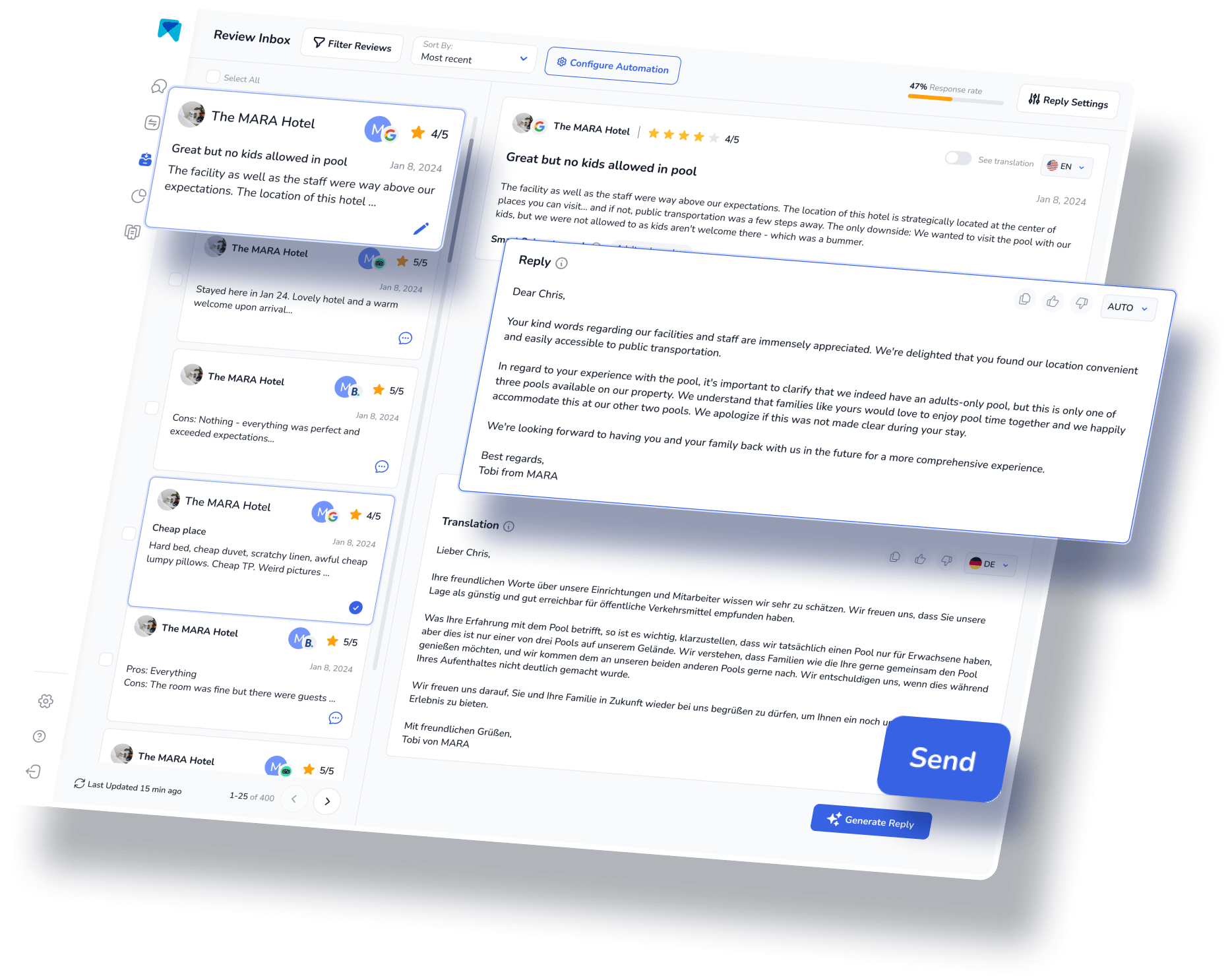
Advanced Review Analytics
To help you understand and analyze the multitude of reviews, the Review Assistant also incorporates Review Analytics. This provides actionable, easy-to-understand insights that are tailored exclusively to your business. With MARA, you can quickly get the gist of all your reviews without needing to read each one. The analysis is so detailed that you can find outabout specific issues like "water in the pool is too cold" or "lack of vegan breakfast option”. These insights help optimize guest experience without requiring you to be a data expert.
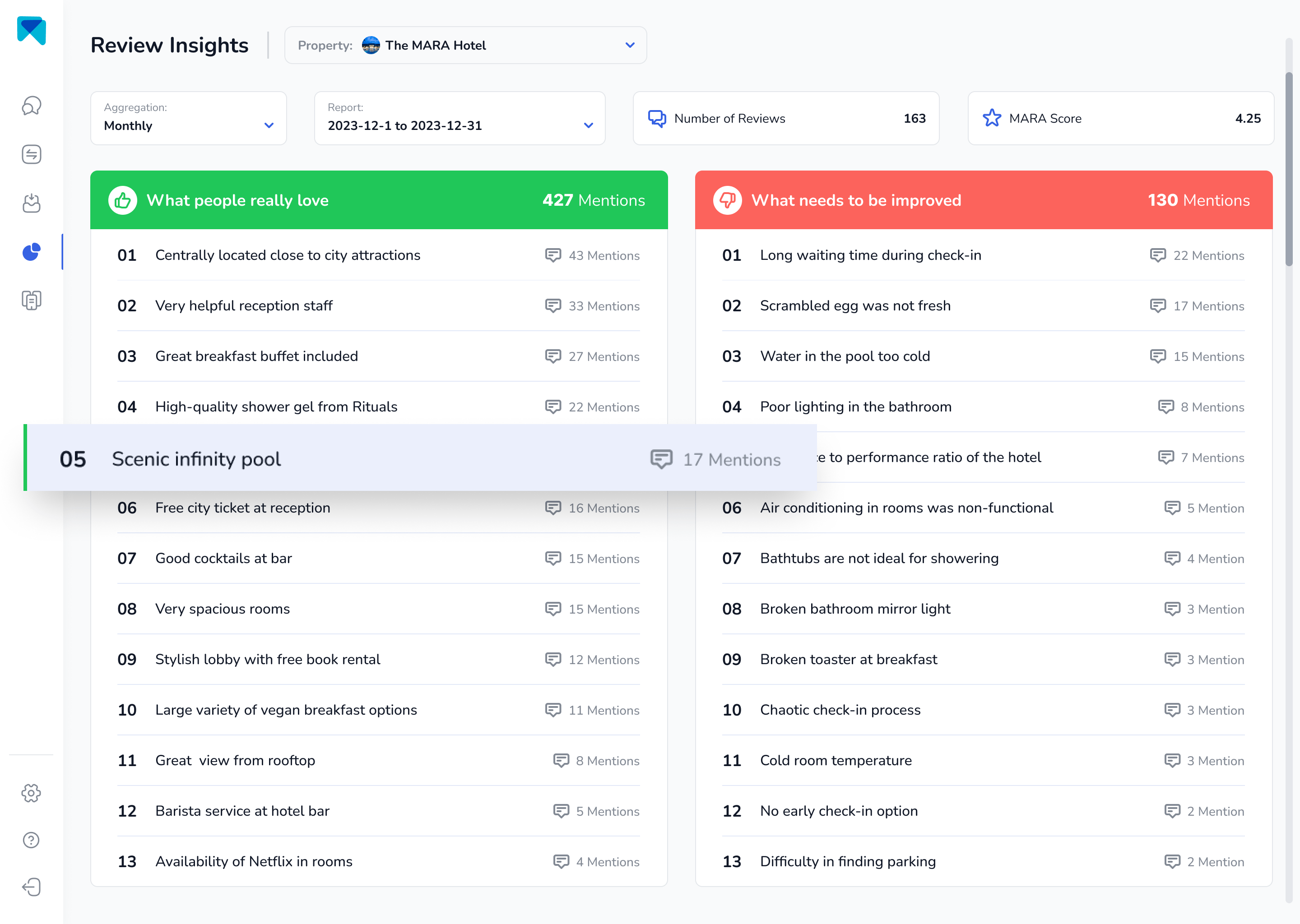
The most personal response AI
MARA's AI isn't just about efficiency; it's about personalization too. The Brand Voice feature allows the AI to adapt to your tone, making sure your responses sound authentically you. Plus, with Smart Snippets, you can "teach" the AI how to respond to recurring praises or complaints. Your AI then incorporates this information into its responses, but always with different words, providing more personalized, relevant replies.
This review response assistant has quickly become a game-changer for over 2000 customers. Its promising capacity to elevate your overall rating, amplify response rates, glean insights from customer feedback and economize both time and money, is the reason behind its growing popularity.
Final Thought
A business's online reputation is more than just a reflection of customer satisfaction—it's a critical driver of revenue and growth. With 85% of customers trusting online reviews as much as personal recommendations, actively managing and cultivating a positive online presence is essential. By leveraging effective online reputation marketing and management tools like MARA, businesses can enhance trust, attract new customers, and drive significant revenue growth. MARA simplifies the process, offering personalized responses and valuable insights from reviews, ensuring sustained success in the competitive online landscape. Try it for free today, and experience its benefits in just five minutes.
This article is part of our hero content on “Online Reputation Management for Hotels".
Frequently Asked Questions:
Regularly monitor online mentions, respond to reviews, promote positive content, and address negative feedback promptly.
It builds trust and credibility, influences consumer decisions, and directly impacts business success.
Managing your digital reputation helps maintain a positive public image, attract customers, and mitigate potential crises.
E-reputation affects consumer trust and business credibility, influencing purchasing decisions and overall brand perception.
Engage with customers online, encourage positive reviews, address negative feedback, and consistently share valuable content.



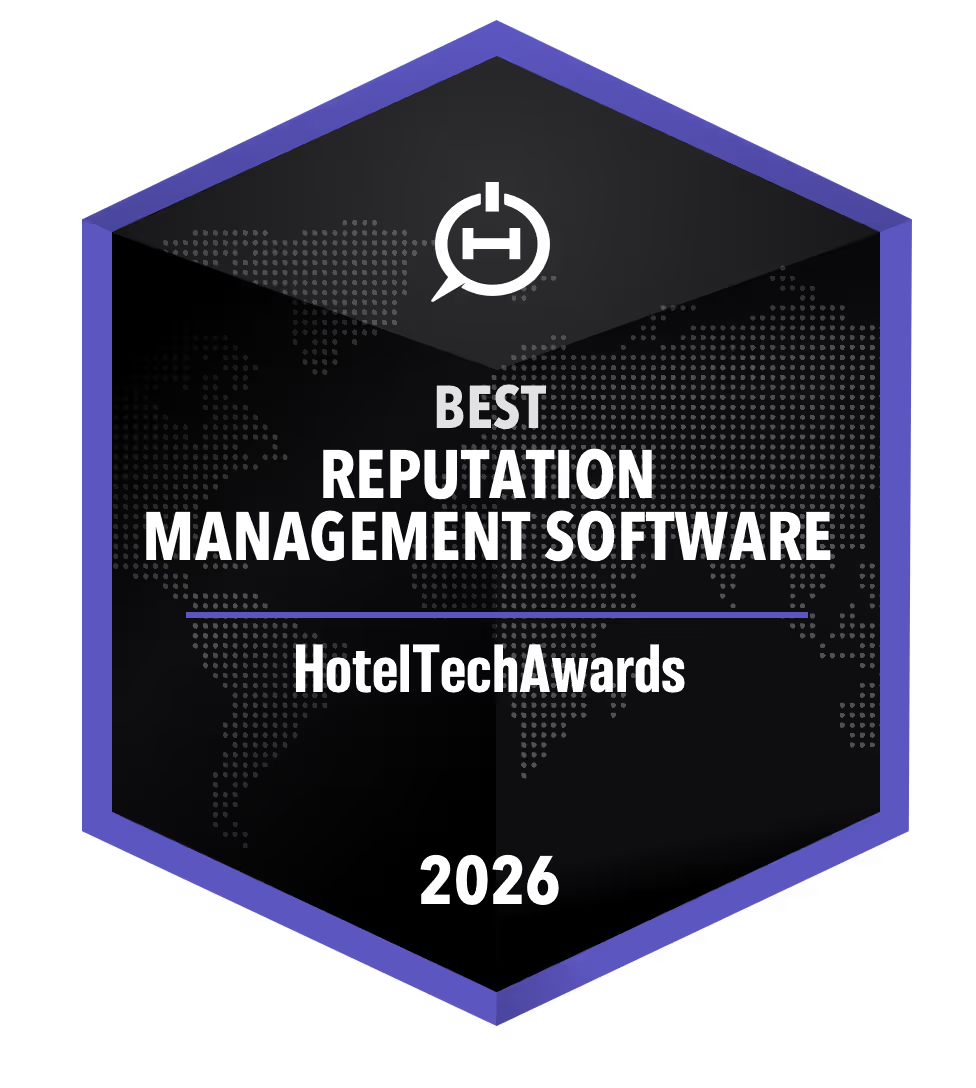

































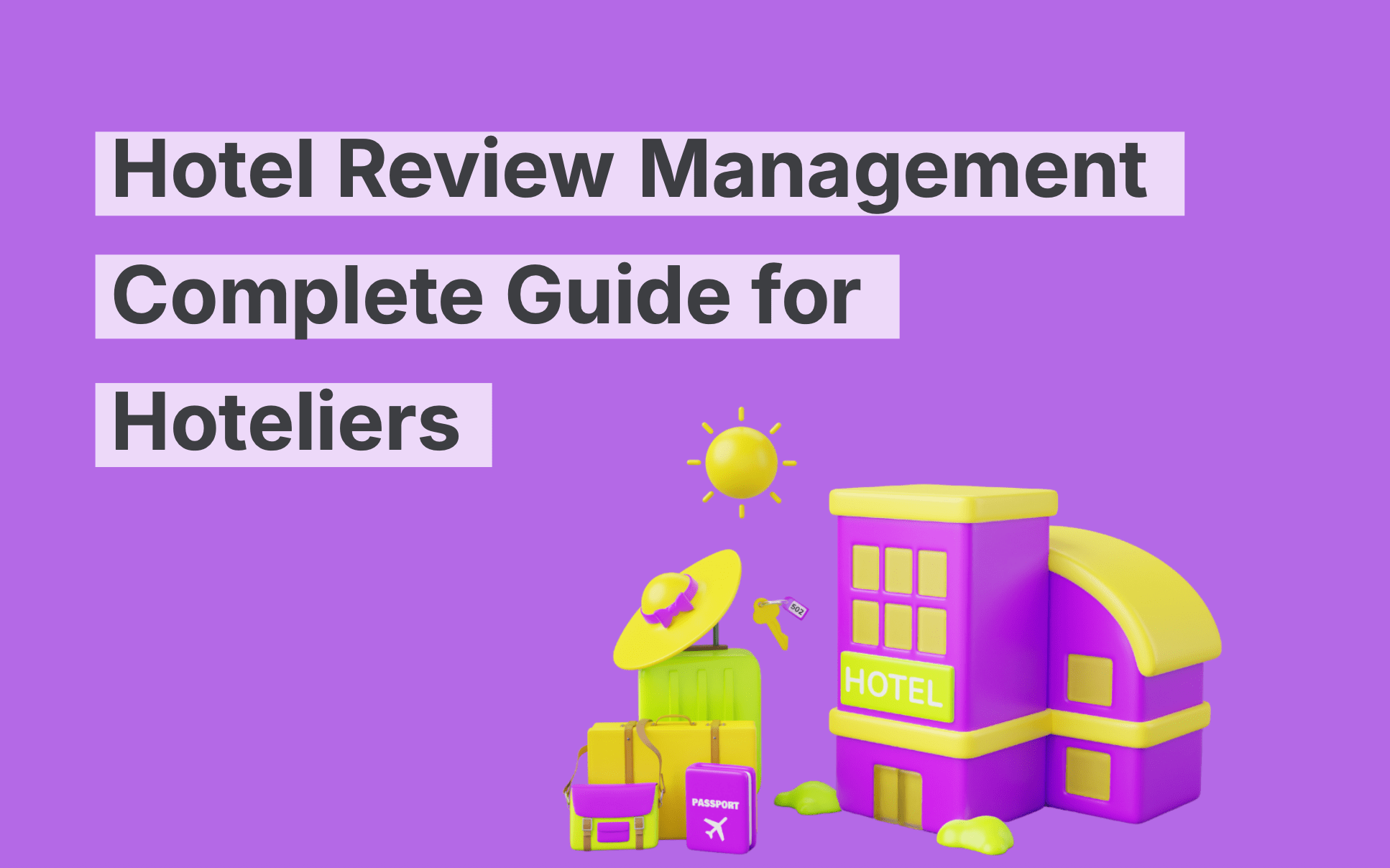
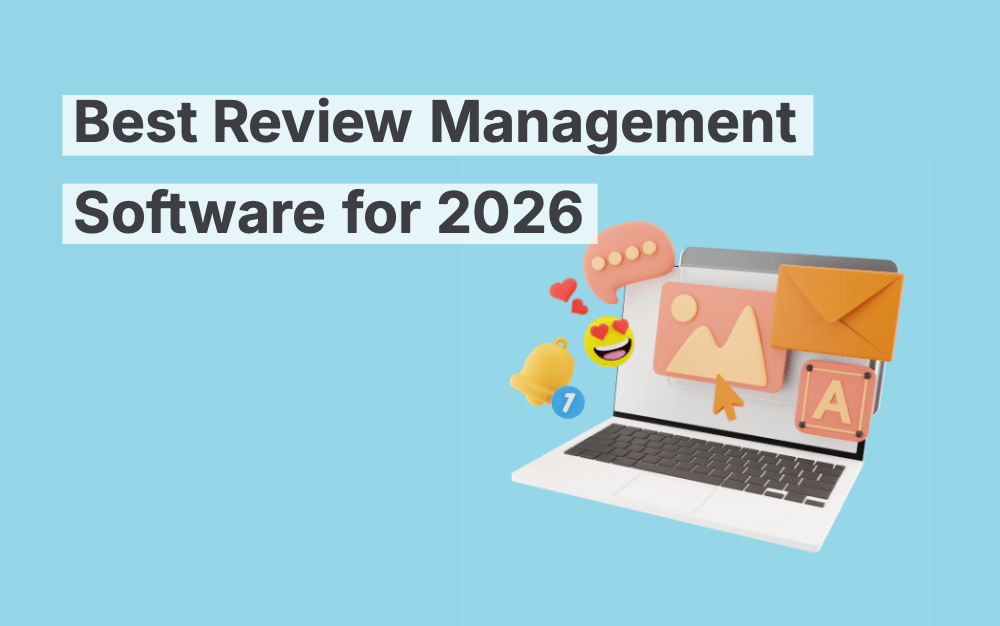
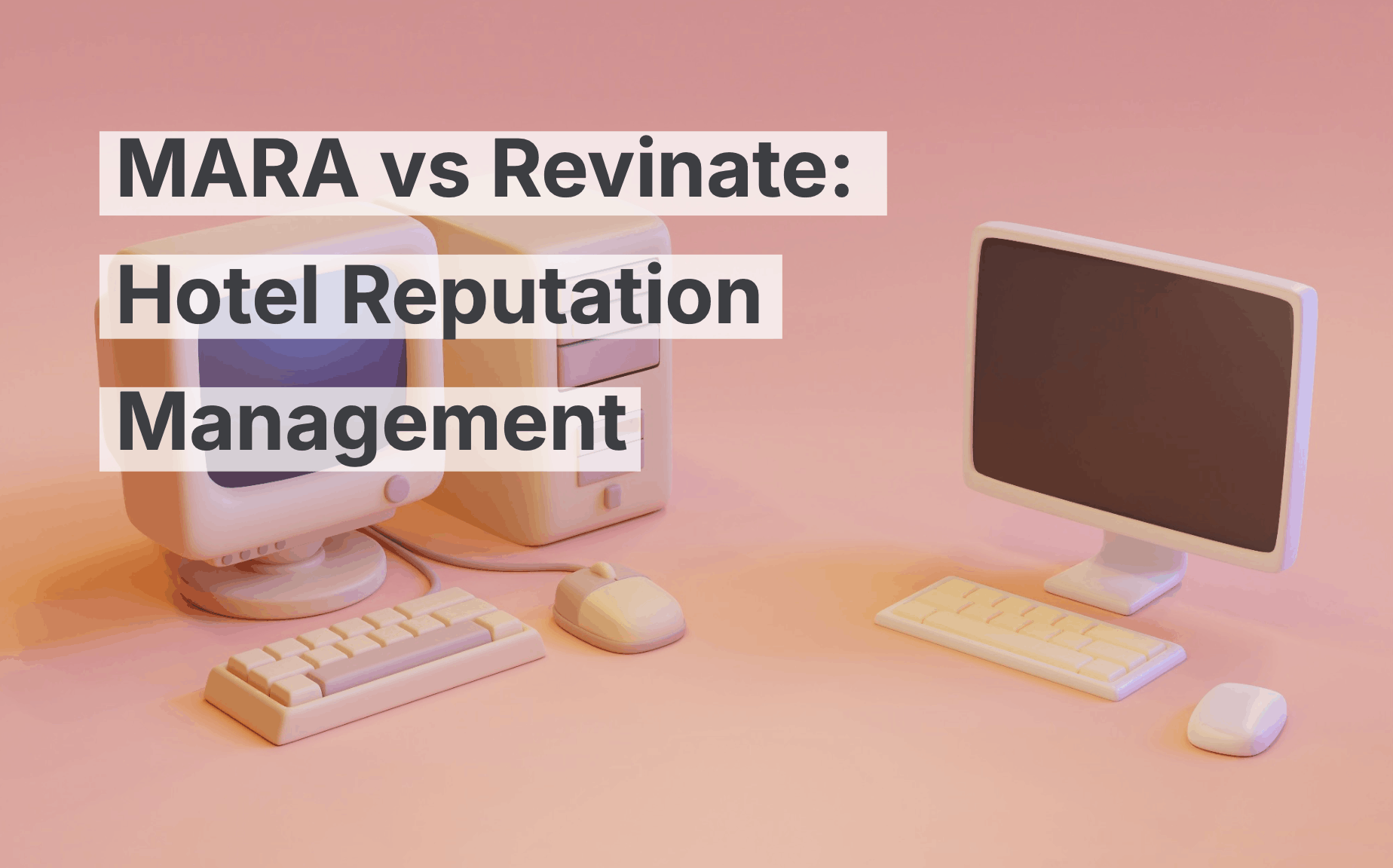
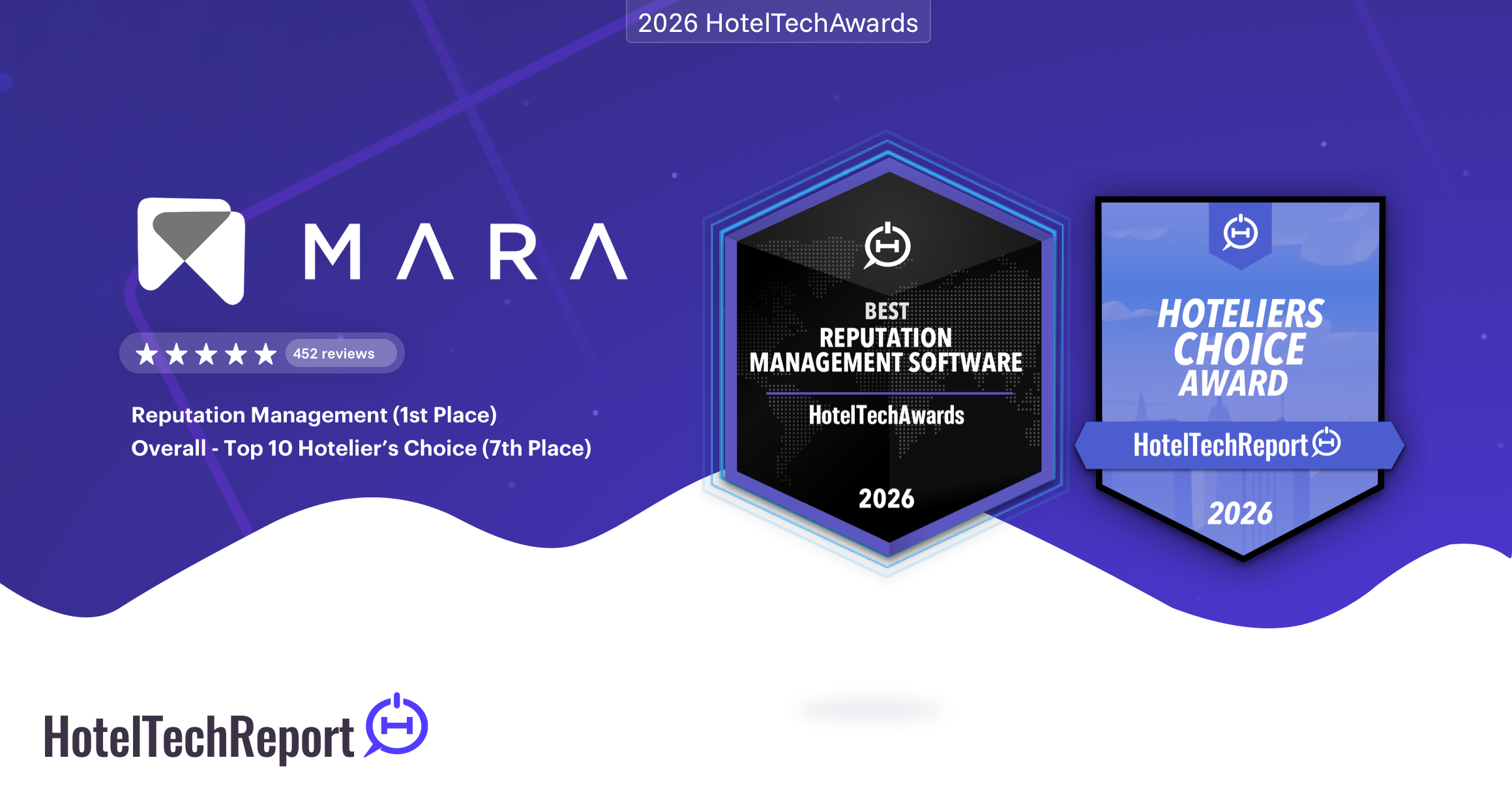





-min.avif)
